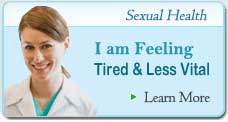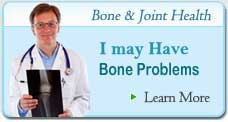» Anti-Aging
» Bones Joints & Muscle Health
» Cardiovascular Health
» Chronic Pain Management
» Dental Health & Wellness
» Digestive Health Problems
- Hemodialysis Treatment For Kidney Failure Explained
- Have Celiac Disease? Find Out The Symptoms & Causes
- What Causes Flatulence? What Steps You Can Take To Treat Excessive Gas
- Discover What We Know About Crohn's Disease - And What We Still Don't
- What Exactly Is Ulcerative Colitis?
» Health Care
» Mental Health
» Sexual Health
» Skin Care

Discover What We Know About Crohn’s Disease – And What We Still Don’t
Crohn’s disease, an idiopathic (unknown cause) chronic inflammatory disorder of the bowel, involves any region of the gastrointestinal tract from the mouth to the anus. The swelling and inflammation can go deeply into the lining of the bowel
This can be very painful and can cause diarrhea, abdominal pain, nausea and decreased appetite. The inflammatory process tends to be eccentric and segmental, often with skip areas (normal regions of bowel between inflamed areas.
Complications of Crohn’s disease include: blockage of the intestine: sores and ulcers in the affected area or surrounding tissues such as the bladder; tunnels around the anus and rectum called fistules; nutritional deficiencies; anemia; arthritis; skin problems; kidney stones; gallstones; or other diseases of the liver and billary system.
Both men and women can have Crohn’s disease.
It can also run in families.
About 20 percent (1 in 5) of people who have Crohn’s disease have a blood relative with some form of inflammatory bowel diseae, usually a brother or a sister, and sometimes a parent and a child.
Crohn’s disease is usually diagnosed in people between the ages of 20-30. About 25 percent of new Crohn’s diagnoses are made in persons who are younger than 20 years of age.
When given proper medical care, most people who have Crohn’s disease are able to lead long and productive lives. New medications and research into the causes of Crohn’s disease are helping to increase the quality of life for people who have Crohn’s Disease.
What Are The Symptoms Of Crohn’s Disease?
The symptoms of Crohn’s disease include:
- Abdominal pain often in the lower right area
- Diarrhea
- Rectal bleeding
- Weight loss
- Arthritis
- Skin problems
- Fever
Rectal bleeding may be serious and continuous enough to cause anemia (low red blood count).
Children who have Crohn’s disease may have delayed development and stunted growth.
The range and severity of Crohn’s disease varies among individuals.
How Is Crohn’s Disease Diagnosed?
Crohn’s disease is diagnosed by a thorough exam and a series of tests.
Blood tests to be done to:
- Check for anemia
- Check for a high white blood cell count and sedimentation rate which are signs of swelling in the body.
Other tests that may be done include:
- A stool sample to check and see if there is any bleeding or infection in the intestines.
- An X-Ray called an upper GI series with small bowel follow-through to look at the small intestine.
What Treatments Exist For Crohn’s Disease?
There is currently no cure for Crohn’s Disease. The treatment for Crohn’s disease usually involves medical care over a long period of time, with egular visits to the doctor to monitor the condition.
Treatment includes: drugs, nutrition supplements, and surgery, or a combination of these treatments.
The goal of treatment is to control the swelling (inflammation), correct any nutritional deficiencies, and relieve symptoms such as abdominal pain, diarrhea or rectal bleeding.
Drug Therapies for Crohn’s Disease Includes:
- Anti-inflammation drugs such a sulfaslazine.
- Cortisone or steroids (corticosteroids) such as prednisone.
- Immune system supressors, such as 6-mercaptopurine or a related drug, azthioprine
- Infliximab (Remicade), a drug that is the first of a group of medications that blocks the body’s inflammation process.
- Antibiotics to treat bacterial overgrowth in the intestine or before surgery.
- Anti-diarrhea medications and fluid replacements
Nutrition supplements may be recommended especially for children whose growth has been slowed. For some patients, this is given intravenously through a small tube in the arm.
While a patients may require colectomy for uncontrolled bleeding, this is increasingly rare in Crohn’s, especially with new immune therapies.
Living with Crohn’s
Whether your newly diagnosed, have lived with Crohn’s for year’s, or have a loved one who suffers from crohn’s, it is important to understand the impact of these diseases on day-to-day life.
By learning all you can about coping with Crohn’s disease, you’re taking a giant step in taking charge of your illness and your life.
Sometimes you just need to know where to turn to find help. This section will provide you with resources to help you manage..from tips on how to find a physician and questions to ask your doctor to information on finding adequate medical insurance.
One of the most inportant steps in taking control of your illness is to find a qualified gastroenterologist who is experienced in treating people with Crohn’s disease.
The Importance of Caregivers
Caregivers play a vital role in the lives of patients and families. While many people with Crohn’s disease can continue to engage in their daily activities such as cooking, laundry, and housecleaning, some may have difficulty staying on top of everything.
Getting help with these essential tasks can make a huge difference in the patient’s lives. Caregivers, including a spouse, parent, neighbor and others can contribute to a patient’s well being and play a significant role as a part of their health care team.
One organization that can assist patients and givers is Lotsa helping Hands. Lotsa helping hands provides a free service that helps caregivers organize a web-based community of family, friends and others to help out during times of need.
Available Help For Sufferers
The Crohn’s & Colitis Foundation has partnered with NeedyMeds, a national nonprofit, to create a much-needed new web resource page for those living with Crohn’s Disease.
The resource page provides information on Crohn’s disease and streamlines and simplifies the way that those with Crohn’s disease may find assistance paying for their medications.
Along with a listing of medications and financial resources that help with the cost of the drugs, the page lists free clinics and programs that provide other types of financial assistance including co-pay assistance.
We know that living with Crohn’s can be difficult, but the right resources and support can make day-to-day living easier.
Coping with Crohn’s disease is a journey of choices. To help educate yourself or your patients on the right choices, a new website has been launched by the Crohn’s Foundation of America called IBDetermined.org. This is a good site that will take readers on distinctive journey about Crohn’s Disease.
You May Also Find Informative:
Aging Fit - Health Research & Information
Better Health. Energy. Quality.






